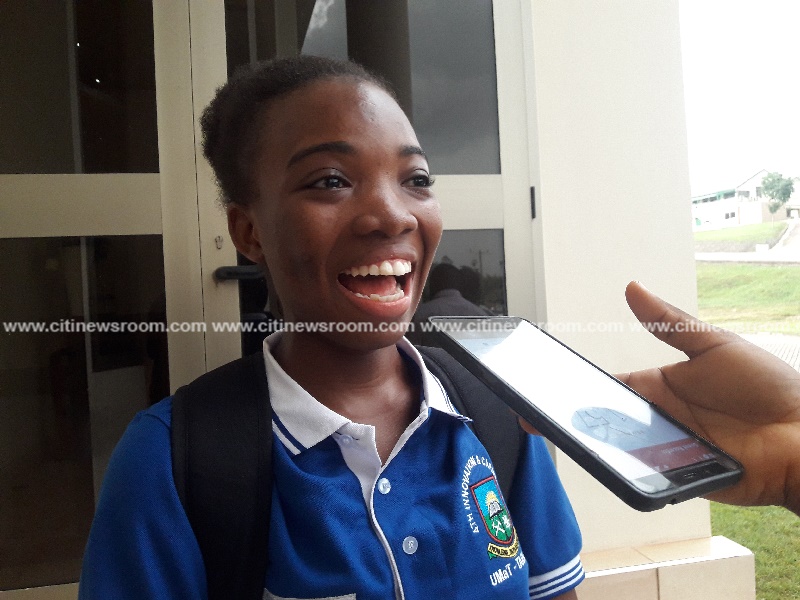Two Computer Science and Engineering students of the George Grant University of Mines and Technology (UMAT) in Tarkwa in the Western Region, Mercy Adonu Quaye, and Irene Okai both 22, have developed an alcohol detection and engine locking system for cars aimed at curbing drink-driving.
The pair, both third-year students of the university displayed their project at the 4th Innovation and Career Fair held at the University on Friday. They subsequently won the ultimate prize for their “invention”.
Speaking to Citi News, Mercy Adonu Oquaye explained that “this device with an inbuilt sensor is connected to the ignition circuit of the car. If the driver gets to sit behind the steering wheel and the sensor detects that there is alcohol in the breath of the driver, it will automatically disable the igniting ability of the car, and then quickly sends SMS to preferred mobile numbers configured on the device, alerting these contacts that the driver has taken alcohol and is trying to drive”.

“This way, we could reduce alcohol-related road accidents to prevent some of the carnage we see on our roads”.
The students, who were excited after winning the ultimate prize said “we are presently working on improving the system. We want to make it such that you cannot disable the device when fitted to your ignition systems, to avoid drivers beating the system.”
They expressed their gratitude to their lecturers and supervisors for the support they got during the processes leading up to the invention.
They dream of sustaining the project, while they consider commercializing it in the future.
Source: Obrempong Yaw Ampofo – citinewsroom

montesqui
April 12, 2018 at 3:41 amGood job ladies where do you go from here
montesqui
April 12, 2018 at 3:43 amUMAT students develop alcohol detecting device to curb drink-driving